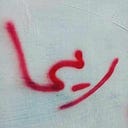Analyze this: What are the Assumptions behind Trump’s ‘New Palestine’ Deal?
In the Trump ‘New Palestine’ Deal and its attendant nomenclature, we are today witnessing the pernicious fruit of the occupation of the Western mind by Israeli hasbara (disinformation). Having marginalized how Palestinians speak of their Nakba and made Palestinian demands literally unspeakable, Zionists and their allies have successfully imposed a “common discourse” on the situation that has become the accepted and “reasonable” way of speaking about Palestine, Arabs, Jews, Muslims and the Jewish state.
Trump’s Deal purports to resolve the “conflict”. How many books, how many newspaper and magazine articles, have been written using this terminology that masks the Palestinian struggle for liberation and turns it into a disagreement or dispute, albeit serious in nature, between equal claims?
The Palestinian “struggle for justice”, on the other hand, is not common discourse; it is therefore easily shelved in a “deal”. It’s “uncommon” in the sense of strange or weird or outside the bounds of polite discourse. Similarly, what is accepted about Palestinian refugees is this: They are residents in “other countries”; they are not in “exile” or in the “diaspora”.
In commenting on my permanent ban from a question/answer social media platform called Quora, Doug Sandlin writes,
Because Quora reflects the cultural attitudes of the U.S., where speaking up in favor of human rights for Palestinians is often arbitrarily punished in ways that are inconsistent with the values that most people, including most people in the U.S., support. Obviously, in most situations, speaking up in favor of human rights is applauded, and speaking against human rights is opposed. Except in the case of discussions related to Israel-Palestine, where the exact opposite is true.
The boundaries of “common discourse” on Quora are the same as the boundaries of Trump’s Deal. Israel’s investment in hasbara — no telling exactly how many millions over the years in every kind of social and cultural arena from Hollywood to news media to academia to lawfare to Congress — is now expected to cough up interest in the way the news media is to analyze and assess the looming failure of Trump’s Deal. As Fadi Zatari put it, “Hasbara is a tool to disseminate Zionist propaganda, and the term helps portray Israel as a victim while serving as an instrument to be used against Palestinians.”
All indications are that the Palestinian Authority, including all Palestinian blocs, the Palestinian street, and Jordan’s King Abdullah will NOT go along with a “New Palestine” that is merely a dark sinister shadow of the Old Palestine. A better solution, in the minds of many, to the problem of the Zionist Jewish state in the Old Palestine is a “New Israel” — preferably on American soil, this time around.
Upon the failure of the Deal, analysts and pundits will ask and speculate on two questions: Who is to blame for the failure of the Deal? What happens now that the Deal has failed? The go-to area in Israel’s hasbara has been “Arab rejectionism”. But given the situation of “Arab” (Gulf and Egypt) cooperation with the Deal, hasbara’s cue cards will now flip to “Palestinian rejectionism” and their “refusal to recognize the legitimacy of the national rights of the Jewish people”.
True answers will arise only if pundits and political analysts ask, what are the assumptions behind Trump’s Deal? What are the assumptions behind the concept of “Jewish nationalism” or “Jewish ethnicity”? It ought not to be hasbara that legitimates these assumptions but rather international law — the law that both the United States and Israel are flouting with this deal.
A peace deal without justice is a non-starter and a ‘no-justice deal’ between the Palestinians and Israelis holds greater risks for world peace than any other area in the world, as US Under Secretary of State Joseph J. Sisco presciently warned in the 1970s.
It is time to stop concealing the fundamental “disagreement” between the Palestinian people and the Jewish state with hasbara masks. The struggle is between the Palestinian people and the settler-colonial Zionist Jewish state, not with ‘the Jewish people’ (as in ‘Jewish nationality’), an identity sold to Jews by Zionism from which many Jews today are disinvesting.
There will never be a deal in any century without a final settlement of Palestinian refugees in accordance with UN General Assembly 1948 (Dec. 11) resolution 194 (III), resolving that “refugees wishing to return to their homes and live at peace with their neighbours should be permitted to do so at the earliest practicable date, and that compensation should be paid for the property of those choosing not to return and for loss of or damage to property which, under principles of international law or equity, should be made good by the Governments or authorities responsible.”
There will never be a deal in any century that does not guarantee the cessation of the Judaization project in Jerusalem.
International law specialists group the principle underlying “issues” in the Palestinian struggle into six major clusters. In the first cluster they list 1. The establishment of the State of Israel and 2. The human rights of Arab and Jewish refugees of the repeated conflicts, and closely related, 3. The claim to self-determination of the Palestinian people.
Solve these problems, as they are called, and you solve the problem of the Palestinian Nakba, the 1948 catastrophe that defines Palestinian identity.
In the meantime, in Gaza, Palestinians will continue to make bricks out of ashes and Palestinians everywhere will continue to find ways to make lemonade out of lemons, as we have been doing for the past seventy-one years.
__________________
Rima Najjar is a Palestinian whose father’s side of the family comes from the forcibly depopulated village of Lifta on the western outskirts of Jerusalem. She is an activist, researcher and retired professor of English literature, Al-Quds University, occupied West Bank.
